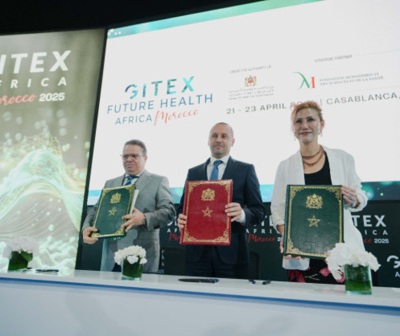Kintambo, a northwestern municipality in Kinshasa, DRC, will test a digital population registry system in cooperation with the Brussels-Capital Region. In the framework of that test, the municipality will carry out a digital identification program to register the population residing in the region.
The test project is funded by the Brussels Development Cooperation, managed by Brussels International. It is part of the cooperation agreement signed on Monday 21 March in Kinshasa by the Minister-President of the Brussels-Capital Region, Rudi Vervoot (photo, left), and the Governor of the city of Kinshasa, Gentiny Ngobila Mbaka (photo, right).
According to Corinne François, director of the Association of the City and Municipalities of the Brussels-Capital Region (Brulocalis), a digital register containing an official record of the population "is important for democracy.”
The digital registry is "the foundation of everything. For instance, during elections, there could be fraudulent acts like counting the votes of dead people if there is no digital register. It is also an important tool to identify where to build a school, a hospital, etc…,” she added.
Belgian municipalities have been assisting Kinshasa in the improvement of its civil registration system since 2008. Thanks to the federal program "International Communal Cooperation" being coordinated since 2017, by the Association of the City and Municipalities of the Brussels-Capital Region and the Union of Cities and Municipalities of Wallonia (UVCW), six Brussels municipalities (Brussels-City, Ixelles, Uccle, Watermael-Boitsfort, Woluwe-St-Lambert, Saint-Gilles) and seven Walloon municipalities (Court-St-Etienne, Flémalle, Herve, Namur, Olne, Waremme, and Seraing) have already partnered with a municipality in Kinshasa.
If the test planned in Kitambo proves successful, the digital population register could be extended to other municipalities and even to provinces. With a secure database of its population, the Congolese government will have valuable assets to devise effective socio-economic development strategies.
Muriel Edjo



















